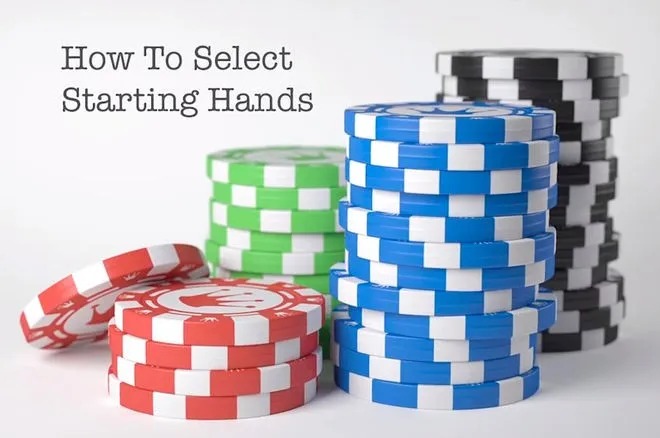As explained in the video, one factor affecting starting hand selection is the number of opponents at the table. With full-ring (nine- or ten-handed) games it is often necessary to tighten up your starting hand requirements, whereas in short-handed games (six-handed, four-handed, heads-up) you’ll want to be looser and play more hands.
Also briefly touched on are certain hand groups like big pocket pairs, hands with two Broadway cards (i.e., ace through ten), and suited hands, all of which can be playable given your position and your opponents’ styles.
The biggest pocket pairs (aces, kings, queens, and jacks) are generally always playable, while discretion sometimes needs to be used when playing middle and lower pairs, particularly in the face of a lot of preflop aggression from others.
Ace-king, ace-queen, and king-queen are often good starters that can make top pair/top kicker hands, while other hands containing two Broadway cards can sometimes fall into the category of “trouble hands” that aren’t always so easy for beginners — or even experienced players — to play postflop.
Suited aces — e.g., {A-Hearts}{9-Hearts}, {A-Spades}{7-Spades} — can make nut flushes, while other hands like suited connectors and suited one-gappers can be potentially profitable, too, especially if you can see a flop cheaply with them.
Probably the most important element worth recognizing for new players when it comes to starting hand selection, though, is to realize how a large percentage of the hands you’re dealt in no-limit hold’em isn’t necessarily playable on the basis of their value preflop or potential to make strong hands postflop.
In other words, while you might occasionally play “trash” hands like {10-Spades}{6-Diamonds}, {J-Clubs}{4-Clubs}, {K-Diamonds}{6-Hearts}, and so on based on position, stack sizes, or your read of an opponent being tight and/or weak, you generally will toss such hands away and only get involved with stronger holdings.
In fact, for beginning players especially, it isn’t a bad practice simply to limit oneself to the better starting hands, particularly when out of position or facing a raise. Source: pokernews.com












